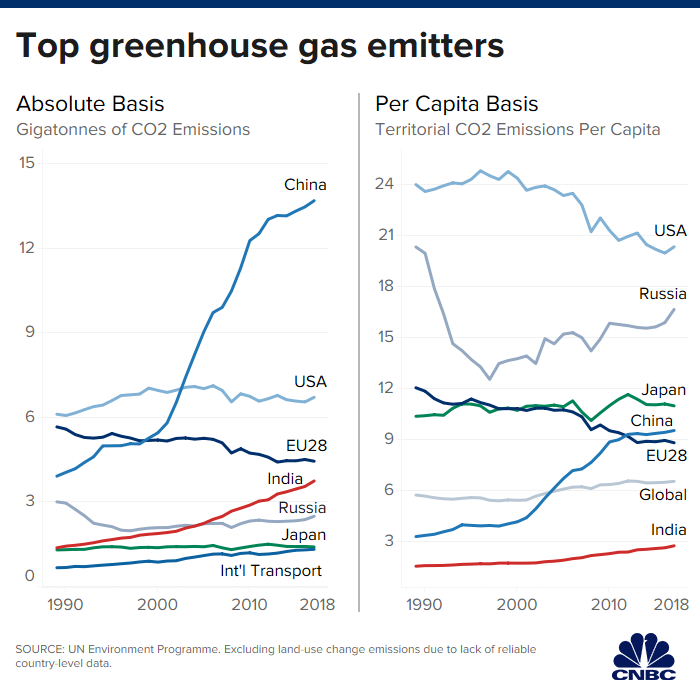Tags
China, climate change, Democratic debate, Democrats, election 2020, Im-Politic, tariffs, Tom Steyer, Trump
It’s now been five days since I first heard it, but I still can hardly believe my ears because this utterance might have been the single dumbest and/or most ignorant combination of positions I’ve ever heard a leading political figure make. It came from Tom Steyer during the Democratic presidential debate last Tuesday night, and even though the California billionaire’s campaign seems to be going nowhere fast as the 2020 campaign nears its primary phase, it deserves to be spotlighted.
The first of the two statements in question? Steyer’s declaration that “On the first day [of his presidency], I would undo Mr. Trump’s [China] tariffs.” The second? “…I would declare a state of emergency on day one on climate.”
Why is this so mind-boggingly idiotic? Because as should be known by anyone who thinks he or she is qualified to be President, not only has China become by far the world’s largest emitter of the greenhouse gases held to be responsible for climate change, but as shown in the left-hand chart below, it started becoming an emitter in a class by itself at the turn of the century – i.e., right about the time when it was admitted into the World Trade Organization (WTO). And the most important effect of WTO admission was greatly complicating the challenge faced by all the world’s economies – including America’s – in using tariffs to curb the growth of China’s subsidy-fueled carbon-belching export-heavy industries.
We don’t yet have data for 2019, but the chart also shows that the growth of China’s emissions began to slow (though they’re still growing faster than anyone else’s except India’s) as China’s economic growth (which has always been export-heavy) began slowing. Moreover, over the last year, as literally hundreds of billions of dollars worth of Chinese goods intended for U.S. markets have been hit by President Trump with stiff tariffs, China’s growth hit a 29-year low. Think that’s a coincidence? Think again, as between 2018 and 2019, China’s annual export growth crash dove from 9.9 percent to 0.5 percent in U.S. dollar terms. (The right-hand chart, which measures emissions on a per capital basis, displays similar trends.)
There’s nothing of course intrinsically wrong with Steyer’s passionate belief in the need to combat climate change. But his utter failure to recognize China’s immense contribution to the danger he sees makes embarrassingly clear – to put the kindest interpretation on the matter – that his knowledge base lags far behind his emotions. To the extent that other high profile climate activists repeatedly let China off the hook as well, they deserve the same criticism. And if this massive blind spot (or delusion) casts big-time doubt on Steyer’s qualifications to be President (which it should), it should have the same effect on all the other climate change resisters who display this shortcoming, too.
